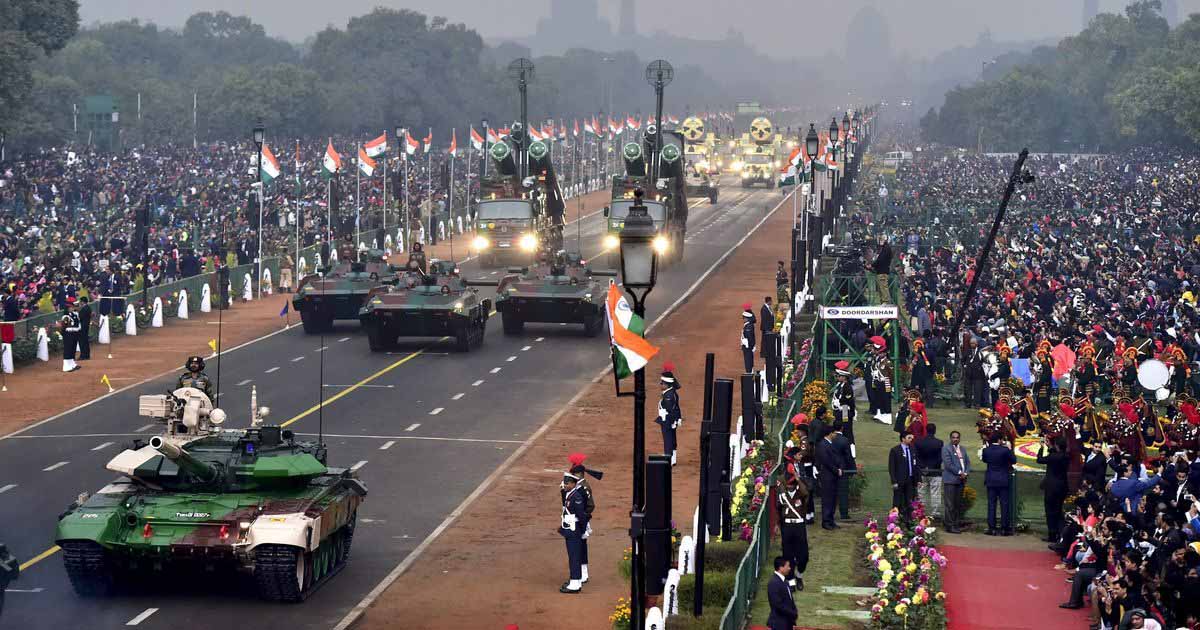Karl Marx was wrong on one count at least. The State has not withered away. In fact, in a greater part the world, including in countries which call themselves democracy, the State has become more domineering in the last decade or so. More than ever before, the visible tendency has been towards authoritarianism, marked prominently by shows of arms and sabre rattling all of which have become the signature of the power of a nation, when it should instead have been the balance sheet of the nation and the way it looks after the welfare of its people. As it stands today, it seems it does not matter if the coffer of a nation is far from full and its people are starving, so long as its arsenals are impressive and modern, the nation will still be seen as powerful and prosperous, therefore command international respect. This in a way we suppose is inevitable, but in every other way a tragedy. As in every year, while at the plush Raj Path, in New Delhi, the latest multi-crore rupees weaponry were paraded for the world to see on January 26, lt it not be forgotten that not too far away, in squalid and crowded slums of the city, there are thousands of people dehumanised by poverty and disease, unsure where or when their next meal would come from. Men, women and children with no identity, or ambition extending beyond the prospect of the next mouthful of food, would have also witnessed the spectacle of India celebrating the day it became a republic, 73 years ago.
But it should make any questioning man wonder if this section of the population would care at all that the celebration is also in their name? We very much doubt it. Do they realise or appreciate the spirit that is India as it is promoted, or are their aspirations different? What actually is the number of these unwanted, “absolute poor” section of the Indian society. People who have absolutely no income, or means to respectable livelihoods. Conservative estimates have put the number at above 270 million. This probably has risen several notches now in the face of the COVID devastation. For these 270 million and more people, what does India mean? Nobody has attempted to search for the answer honestly, because there are not many who are bothered to give it a try. Just as the dregs of the society do not have an identity, the creams of the same society too do not want to give them any. The two are aliens to each other. This widening chasm between the privileged and outcastes of India is its shame, and perhaps doom too if it allowed not just to remain, but also widen further. At this moment, the country seems to be marching right back to the middle ages. Science is being discouraged, and myths are being encouraged to replace it. Hence, we have heard new advocacy in high places calling for rejection of the theory of evolution, or for children to be taught peacocks reproduce from tears they shed. There are hordes out on the streets ready to rampage and vandalise even cinema and other art forms which disagree with their cultural vision, and more than this, which do not see their enemies as everybody’s enemies and therefore of the nation as well. It is difficult not to ask, where exactly is the Indian Republic headed for at this moment. Will there be course correction soon? For everybody’s sake, we do hope so.
There are other kinds of dichotomy of interests. As for instance, in Manipur and the other Northeast states, militant outfits have as a matter of routine called for boycotts of Republic Day celebrations. This year was no different. In fact, over the years these boycotts have reduced the celebrations in most of the Northeastern states to mere shows put up for official records. Even as an official formality, the celebration may be incomplete, as many government officials, except those mandated to be present, prefer to stay at home on the day. The zeal which should accompany celebration of the nation pledging to constitute itself into a Republic – a governance mechanism dedicated solely to the wishes and aspirations of its public.
It must also be added here that there is still a good section of the people who are not willing, or are even opposed to being absorbed into the spirit of India. Rather than simply blame-react, here too, the more important question should be, why is this happening this way even after 73 years of becoming Republic? Is there something wrong with the people, or is there some shortcoming in the spirit of India itself? If the spirit of India is that of a republic, must it not reflect the will of all sections of its people? If there are sizeable sections of people which still do not understand or are opposed to the spirit, can the spirit be one of a complete republic? These are disturbing questions long ignored. But the time has come for each of us to readdress these questions to ourselves and to the powers that be. If the spirit cannot accommodate all sections of the people, should the people be crammed into it by force, or should the spirit be expanded, altered, reformed in accordance with the will of the entire people?










